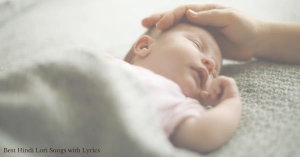What is anorexia nervosa?
Anorexia nervosa is a type of eating disorder. It can be said to be a mental illness which influences how person things about food and their body image. A child or teenage who is suffering from anorexia nervosa will limit the amount of food they are eating severely and can also limit the amount of liquid intake. They will be obsessed about limiting consumption of food, their body weight and image. They will have a healthy obsession with the body weight. They may think that they are overweight even though they would have a normal weight.
What causes anorexia?
There is no specific cause for anorexia. It is caused by a combination of multiple factors influencing genetic, social, environmental and cultural factors. It is not a choice that the child is making to have anorexia. It is not something which they can control at their free will.
Do children suffer from anorexia?
It is most common for teenagers or women in their early 20 to suffer from anorexia nervosa but any age group can suffer from anorexia including young children as well. Even though it is said to be a disease of the female gender, it is complete myth. Even young boys and teenage boys can suffer from anorexia.
What signs and symptoms will I notice if my child has anorexia?
You will notice a couple of alarming things which can point towards anorexia nervosa in a child. It will include social, physical and behavioural patterns. Some things which you might notice if you child has anorexia are:
- Your child may not be gaining any weight.
- Your child may be losing weight rapidly.
- Your child would be limiting the amount of food they eat.
- Your child would often talk about their body and its relation to food.
- Your child might have an unhealthy obsession with exercising excessively to lose weight.
- Your child may not except the fact that they are underweight or have a normal weight.
- Your child may follow very strict rules about eating and dieting.
- Your child may avoid specific foods or certain food groups completely.
- Your child may avoid social gatherings with include meals.
- Your child may have a low self esteem.
- You might notice your child moving food about their plate without eating at all or pretending to eat but when in reality they do not.
- Teenage girls suffering from anorexia may have delayed puberty.
- A girl may have suddenly absent periods.
Are there any health complications due to anorexia nervosa?
A child with anorexia nervosa is limiting their food intake. This means that they do not have enough nutrients to ensure proper functioning of the body. This would definitely lead to health complications in the long term with might include:
- Development of anemia due to nutritional deficiency.
- A constant feeling of weakness or fatigue.
- Loss of muscle mass and tone.
- Nails and hair become brittle.
- Chronic constipation.
- Mental fog and inability to focus.
- Reduced immunity
- Low blood pressure
How is anorexia managed?
Management of anorexia incorporates multiple approaches at the same time. There are nutritional therapies which focus on creating a diet plan for the child which will help them regain weight and allow adequate great nutrition for the child; Nutritional counselling with a registered psychiatrist or councillor to provide therapy to your child. Certain medications might be prescribed if your child has been diagnosed with anxiety or depression. Concurrently, your child need to be hospitalised if there are severe complications.
How can I help as a parent?
- You should support your child during the treatment of anorexia.
- The treatment of anorexia is a long and arduous process which would require multiple visit for therapy and proper nutritional guidance.
- Often there may be episodes of relapse but they can be treated adequately.
- You should avoid getting frustrated.
- If your child has been diagnosed with anxiety or depression, you should consider therapy.
- You should not blame the child for having a disease or becoming a burden.
- You should consider joining support for parents which can help.








